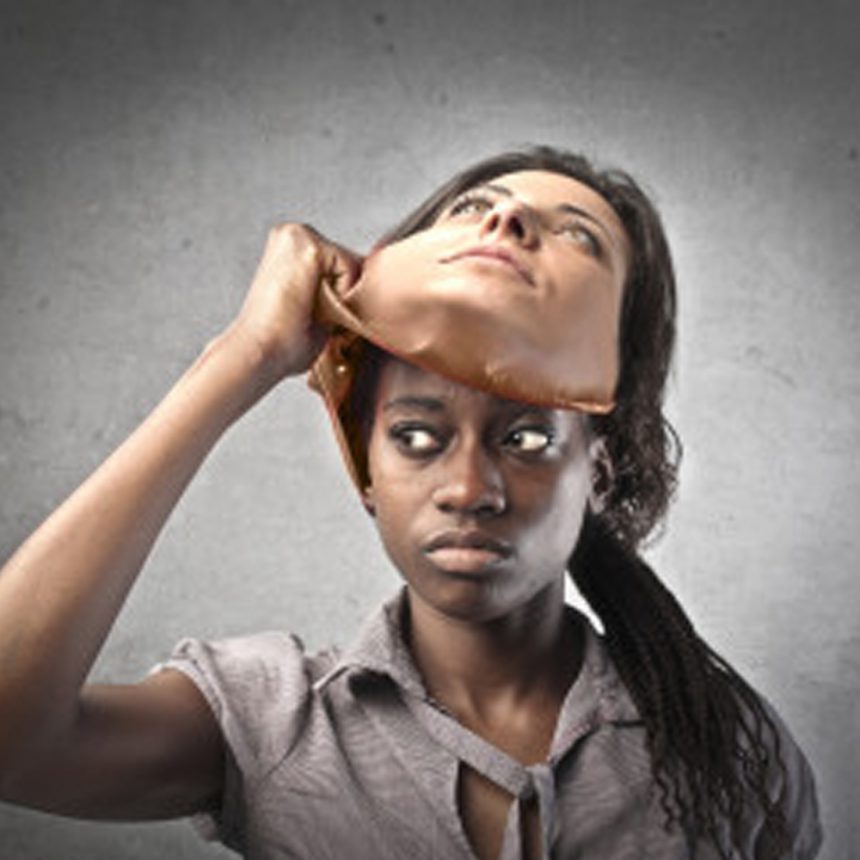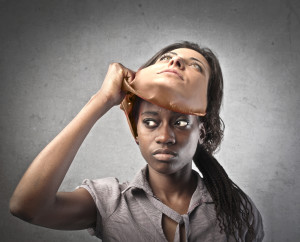Written by Gail Meadows and Bob Livingstone
Internalized self-hatred is a huge issue and this blog is an introduction to this phenomena. Internalized self-hatred is when you despise your own racial, ethnic, cultural, sexual and or religious identity. This self-loathing far too often results in suicide or other physical self-harm. It also manifests in far more subtle, but damaging ways. There is a belief that is either shared with others or hidden in shame, that the stereotypes we hear about ourselves are true. Sometimes we are aware of our own internalized self-hatred and other times we are oblivious to it. You may come to believe that aligning yourself with the mainstream culture somehow makes you more desirable and therefore less likely to be ostracized by those whose acceptance you are so desperate for.
Examples of stereotypes: All Jews are cheap, all Black people are criminals, all Muslims are terrorists, all Italians are members of organized crime, all women are conniving, all gay men are vain and selfish, all Mexicans are dumb, all those of Irish decent are drunks, and all lesbians love flannel.
Some of us learn to believe that these stereotypes are accurate out of the need to be accepted by the mainstream which is perceived as white and wealthy. The fear is that if we are not accepted, we won’t be able to reach the heights of the American dream. That dream is owning a house in the suburbs and children going to the best private schools. The dream also includes having enough disposable income to go on lavish vacations and buy all the latest gadgets.
We become afraid of offending the mainstream; so to compensate for the stereotypes we believe we carry, we try to prove we are the exception and devoid of this alarming flaw. We then tend to ignore or laugh at their depiction of stereotypes. If you are Mexican-American, you may hear from a white acquaintance, “Oh, you’re not Mexican, you were born here.” You find yourself feeling terribly uncomfortable, but you don’t correct them because you feel that if you do, they will be angry and kick you out their club.
For example the Jew who goes out of his way to prove his generosity to disprove the stereotype. He may barley have enough money in the bank to pay his monthly rent, yet at his firm’s Christmas party, he will make it known that he is donating hundreds of dollars to his bosses favorite charity. This is done in an extreme effort to be accepted by his colleagues and coworkers.
Gail’s story:
I was taught by the hair dresser, magazine ads and television commercials that my Black Nappy hair was ugly and unmanageable. On alternate Saturdays I was taken to the beauty shop for a wash and a press. Oh! The smell of singed hair and the burns on my ears and (my kitchen) the hair closest to my neck. This horrid treatment began when I was ten years old and went on for many years. There was the time that I had my hair cut to resemble the Beatles style. This act signified a longing to possess hair like white people. When I arrived home sporting my new do, my siblings teased me saying that I looked like Moe of the Three Stooges. I was crest fallen but it did help me to take a second look at what I had done and why. I was taught to believe that straight hair and light skin was more beautiful than dark skin and kinky hair. The message I had been getting all along was that we were not as attractive or desirable as whites.
Bob’s Story:
I am Jewish and I remember when I was in high-school and running on the cross country team. One day several non-Jewish team mates approached me and said they were glad that I wasn’t like the other Jews on the squad. At the time, I took that as a compliment. I never even asked them what qualities they believed made these other Jews abhorrent. They were probably referring to the Orthodox Jews who wore yamakas daily.
I discovered later that those who were anti-Semitic usually hated anyone else who was different. It has taken years to establish a positive Jewish identity and here is another personal story of internalized self-hatred.
I was in graduate social work school during the end of the 1970’s. There was a TV miniseries on called The Holocaust. People were calling this show the Jewish Roots because it was supposed to be so epic.
There were number of scenes in the first episode that depicted Jews (us) going passively to concentration camps without resistance. Several of my classmates asked me why we didn’t fight back. I remember being filled with shame and having no answer to their questions.
I was a social work intern in a hospital. One of my patients had a boyfriend who was known to be violent and armed. He somehow got into her room and panic was in the air. I ran to her room and knocked on her closed door. Her boyfriend ran out and I chased him for a little while until I realized how crazy I was acting. He could have killed me with the gun he was carrying.
I immediately figured out that I played out this hero fantasy in order to prove to my fellow students that Jews were not cowards and that I was not afraid of being hurt. I learned later that there was Jewish resistance to the Nazis such as the Warsaw Ghetto Uprising.
How to get rid of internalized self-hatred:
Surround yourself with images of people that look like you and who are proud of themselves.
Join a group of like-minded people who are interested in combating hatred of others.
Make sure your kid’s school has diversified their staff and student body.
Be aware that we all have internalized self-hating thoughts from time to time.
Talk to others about your thoughts and feelings rather than burying them.
Confront those who spew hateful comments rather than ignoring them or seeming to agree with their mindset.
Read books about your culture and others. Make sure your children have books validating who they are.
Stop watching any news programing that trivializes you. Seek out programming that is respectful to your identity.
We encourage you to share your stories about internalized self-hatred either on Facebook or the comments section below.
Bob Livingstone and Gail Meadows have been married since 1972.
Gail is the owner of the only Afro-Centric Elementary School in San Francisco.
Find out more about Gail here. Gail’s Blog is The Triumphs of Black Children
Bob is a psychotherapist and author
Check out Bob Livingstone’s latest book here



Leave a Reply